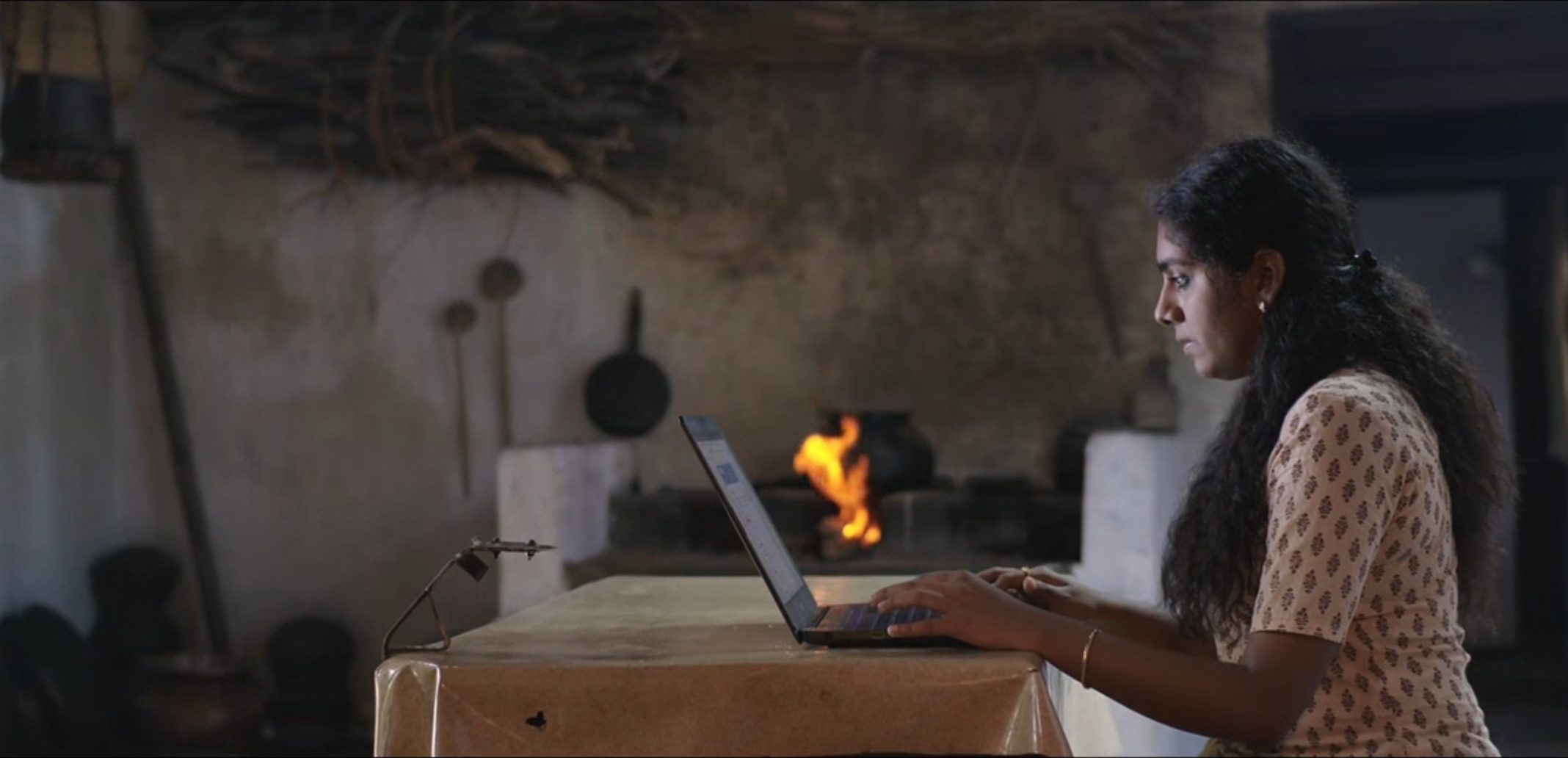After the movie “Kilometers and Kilometers,” the director Joe Baby is back with another movie. But this time, the movie has more value than the usual movies we saw. This movie portraits the actual story of Many Indian Women—those who spent almost the entire part of their life in the wall around the place called Kitchen. Here we will be looking at The Great Indian Kitchen Review.
For most of these women living inside these walls, the outside world is only known to them when they watch TV or Mobile phones in their free time. Unfortunately, the free time is a rare thing and probably unknown for them for a long time as they worked hard to please their husbands and children. While many husbands who give lists to their wife on what to make and how they should serve them, do the chores of their house and look after other members of the house, they don’t care about the feelings of their “beloved” wife.
What are their desires or how to satisfy them sexually, nothing! But they still proudly say that their wife is happy without even caring if she is good or not. The movie “The Great Indian Kitchen” discusses this topic. Many didn’t dare to touch the topic, which may hurt many of the patriarchal society’s feelings. This could also be the reason why the major OTT platforms didn’t accept this movie.
Although this topic was tried to be discussed in many movies, the way which many choose to introduce this topic wasn’t as serious or straight forward as this movie did. Along with this important topic, the movie even dared to touch how women were treated during the menstrual period, even at this age. The irony was that the husband was a teacher who should be the light to others but still living in the dark age customs.
The Cast
Interestingly, this movie doesn’t have any noticeable cast to speak of, other than National Award Winner Suraj Venjaramoodu and Nimisha Sajayan. Both showcased their excellent performance in the movie “Thondimuthalum Driksakshikalum” before joining The Great Indian Kitchen. But it wasn’t only Suraj And Nimisha who performed well.
Interestingly, most characters in this movie don’t have any names. Both Nimisha and Suraj’s characters are called molu by the husband. The wife calls him ettan, which can be considered a symbolization for many people, like the movie’s different characters. And they can’t be called with a single name bu all of those people in real life share the same thoughts as many characters in this movie. Be it forward, modernistic thinking, or backward thoughts, both kinds of people exist in our society—both in reel life and real life.
All of the other faces appearing in the movie performed to the level of excellence, where they conveyed the message that the director was trying to communicate with the audience.
Read: Godzilla vs. Kong: Trailer Breakdown & Preview
The Movie’s Plot
The Story of The Great Indian Kitchen, Directed by Joe Baby, starring Suraj Venjaramoodu and Nimisha Sajayan, is about a newly married young woman who is about to start her life as a newlywed into a prestigious family. She had high hopes for her new life as a married woman, but things weren’t as pleasant as expected for her. The movie moves forward, going through all those challenges that she had to face and how she tried first to adjust and adapt and, in the end, her response to those problems.
The movie begins Nimisha dancing in a dancing school while the movie shows a simultaneous scene where the food and sweets were prepared for her Pennu Kanal, an event where the boy meets the girl before their engagement. The young lady’s character, played by Nimisha, was smiling happily when she was dancing, and this is the only scene in the movie where we could find her happily.
Just as the film’s title, The wife’s entire marriage revolves around this so-called great Indian kitchen. On their very first day as a married couple, the ‘loving’ and ‘caring’ husband, played by Suraj. He enters the kitchen to cuddle up to her. And after that, instead of helping her in the kitchen or asking if she needs help, leaving his cup there to clean, he leaves the kitchen.
While the wife and the mother-in-law cuts, cooks, cleans, and does every other chore in the home, the husband does yoga, and the father-in-law was busy reading what is happening “around the world” while reading the newspaper. At one point, we can see the husband, a teacher, teaching his students about the importance of family. The irony was that both of the men weren’t trying to understand what the women want. Just as the bride’s ornaments were locked in a locker, her dreams and desires were also locked, which she only realized in the coming days.
We could see the father-in-law every morning while slouches on the armchair and reading the newspaper. To brush the teeth, he needs his wife to hand him his toothbrush and paste because he doesn’t want to do that himself or knows where it is. Both father and son unanimously need their dosas hot off the stove. At one time, when the wife prepares chutney, a must-have with the dosas for both the men when the mother-in-law wasn’t at home. The father-in-law wasn’t pleased to see it wasn’t prepared on Ammi Kal. In fact, he asks her not to prepare in the mixer since the taste affects! After enjoying their food, the men carelessly leave behind the leftovers for their wives to clean up.
The wife was uncomfortable seeing this as it was her and the mother-in-law’s turn to eat at the table. The mother, who has been seeing this almost every day, casually sits down and starts to eat her food. The father-in-law, who is even lazy to take his brush and paste to brush when he is about to go out, calls out his wife as a signal to hand over his footwear. The mother will rush with it and place it in front of this entitled man.
All of the house’s control was handover to the wife, who is only getting to know the family’s tastes. When the husband’s mother goes to visit her elder daughter. On the first day, the father-in-law narrates the day to his wife over the phone complaining that his daughter-in-law wasn’t cooking the food by cooker in gas stove. He wants the rice to be cooked in the firewood. Even the mother asked him to adjust for some time. But was met by the adamant husband’s reply as Please tell her not to cook rice in the cooker. It wasn’t a request, but a warning.
Talking about how caring is this Ettan is towards his wife, she has been asking to send a plumber to repair the leaking basin. But he was too busy with his job and not to do what his wife asked for. But he does remember to please himself with sex with his molu, without caring if she was interested or not. Ettan, who doesn’t follow table manners at home, readily followed table manners when he was outside. When Molu made a joke on this, his male ego got upset and wasn’t ready to accept his mistake, stating that it’s his home and he will do whatever he wants to. He even made her say sorry for making this “mistake.”
When his Molu asked if she could apply for a dance teacher’s job, her Ettan said not now, while the father-in-law was straight up against it, stating that women who stay in a home can only bring “grace” to their home. But this “grace” of the home is soon treated as a disgrace by his family when she reaches her menstrual. The same woman who did every job in the house is now isolated during her period. She was asked to sleep on the paya (mat), not the bed. She can’t enter the kitchen, should not interact with anyone inside or outside the house.
At one point, she was even asked to move out of her home because her husband and father-in-law were about to go to Sabarimala. All this was to prevent the wrath of god! She wasn’t given a bit of respect just because she was having menstrual. The wife soon realizes that she had traded her life and freedom to be the wife of someone who doesn’t care about her feelings or wasn’t even ready to please her sexually, even when she suggested foreplay. She realized that before sex and treated his wife more like a bonded laborer. Suraj’s character never abuses the wife verbally or physically.
Even during the “act of pleasure” at night, The wife’s mind wasn’t filled with the enjoyment of the particular time, but her mind was filled with the overflowing sink’s visuals, the dirty dishes with food wastes. These visuals were so disgusting and hard to shake off but still had a lot of powerful meaning. It shows how hard it was for her, but no one was ready to ask how she felt. Instead, they all wanted her to do the labors for them and please them.
All of the characters aren’t as preachy as the house members because the same incidents that disgust the family members were taken as the silly reason by the maid Usha when she came to look after the home during one of the times when the wife was going through her menstruating.
As days pass, Nimisha’s character feels suffocated like the house’s clogged drain more and more. She wasn’t happy to eat near the leftover or clean the leftovers by her husband and father-in-law. Instead of “adjusting,” which even her mother suggested the wife do, she was an aware woman that knows something is not right but is made to feel helpless.
When the first time she informs her husband that she’s got her period, instead of asking her what she needs, he starts the monologue about how she can’t enter the kitchen, and he needs to call someone to manage the chores, etc. His monologue was only cut by her, asking him to get a pad for her, as she was out of pads. And he wasn’t expecting that.
There is nothing new or exceptional about this particular family, and most women will agree to many of the instances happening in the movie. As said in the beginning, the people’s names may vary, their place and religions may vary, but the treatment is more or less the same.

An entitled man who wants to marry a woman and then, consciously or sub-consciously, enclose them within the boundaries of marriage. The movie doesn’t state that every home is like this, as the movie itself shows the wife’s friend who was happily married and was always getting help from her husband.
Cutting down her wings to fly towards her dreams and voices in the lame reason of tradition and honor. Even if men did wrong, The women are the ones who need to adjust, sacrifice or even overlook. But why most women go along with it instead of not complaining? And what will happen when women try to break these chains? They face the consequences!
One which stood out of many of the movie’s great scenes is when the husband asks her to pull down a Facebook post, which encourages the Sabarimala verdict. Since he was practicing abstinence for his pilgrimage, he stood outside the door and asked her to remove it.
Nimisha’s response was a befitting one: She questioned how her opinions affect him and what he can even do. She slammed the door, saying that he can’t even see or touch her. The wife’s opinion may not be the same as any watching the movie. Still, as every person in this country, she also has the right to express her opinion without others’ interpretation.

The Great Indian Kitchen is not any regular movie, but the remake of many real-life situations, which most of us see and may even didn’t gave any thought to it much. But with this movie, the director communicates that everyone has to be given respect and the opportunity to express their opinion.
The movie doesn’t contain any songs nor any comedy scene. Instead, it contains only the bitter truth of what is happening in our society right now. The movie is worth watching and will stay inside you for a pretty good time. This is The Great Indian Kitchen Review for you by us.
The Great Indian Kitchen is available to watch on Neestream. Although the app may be as stable as most other streaming platforms, we still suggest you watch it officially instead of watching the pirated copy.

